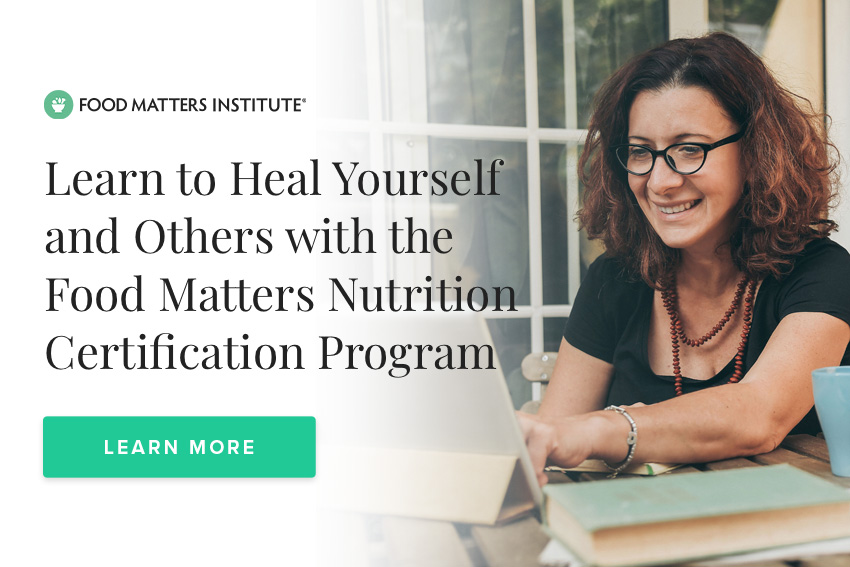Low Energy & Dizziness? You’re Probably Low in This Mineral
There is research to suggest that as many as 80% of the world’s population is low in iron. This isn’t always to the point of extreme deficiency or anemia, but for many of us suffering from symptoms like low energy and dizziness, it’s paving the way there. But how do we know if we have low iron levels and how will this impact our health in the long run? Low energy and dizziness are just two of the most common symptoms of low iron, but it could be affecting you in many more ways.
The best part? You can boost your iron levels with simple foods - no matter your diet. Here’s everything you need to know about low iron levels.
Why Does The Body Need Iron?
Iron supports blood. Blood isn’t just something we see when we graze our knees or cut our fingers; it’s essential for delivering nutrients and oxygen to every cell in your body. Most of us can remember from school that blood is pumped from the heart and through the veins, but when it gets to cells in the body, it has a special job - keeping those cells alive by nourishing them with oxygen, and taking away the carbon dioxide. Iron plays a central role in the hemoglobin molecule of these red blood cells.
Low iron isn’t always as simple as just not getting enough, sometimes it relies on other factors - like getting enough of the right nutrients. Vitamin C is essential for iron absorption in the body, so it’s always recommended to consume iron with or close to vitamin C. (You’ll discover some of our favorite food sources shortly). It’s also important to consider that low iron may be impacted by many different factors - which is why it’s wise to consult a practitioner if you notice anything abnormal.
What Are The Common Symptoms Of Low Iron?
The body often has some tell-tale ways to let you know that it isn’t getting enough iron. One of the most noticeable symptoms of iron deficiency is fatigue and lack of energy. Other signs & symptoms can be:
- Weakness
- Pale skin
- Shortness of breath
- Dizziness
- Headaches
- Brittle nails
- Fast heartbeat
- Strange cravings for non-food substances like ice or dirt (this is called pica)
- Cold hands & feet
- Tingling
- Crawling feeling in the legs
A person with low iron doesn’t necessarily need to be suffering from all of the symptoms of low iron to determine if they need a top-up, but sometimes just two or three will present.
What Are The Long-term Effects Of Low Iron?
If left unaddressed, low iron can begin to have a more serious effect on the body. When iron reaches a certain level, you are technically classed as iron deficient. Iron deficiency itself is easily corrected with nutritional supplements and health-promoting diets (which we’re about to cover), but prolonged deficiency can result in the development of anemia. Anemia is a condition where you don’t have enough healthy red blood cells, to carry oxygen throughout your body. Anemia can be temporary or long-term (chronic). In many cases, it’s mild, but anemia can also be serious and life-threatening - which is why it’s important to consider iron deficiency.
What Foods Are Good Sources of Iron?
Like most essential nutrients, they can be easily boosted through a healthy, well-rounded diet. For more extreme instances of deficiency, a supplement recommended by your practitioner will also be helpful. But here’s the low down on food sources:
- Heme & non-heme iron: Iron from food comes in two forms, heme and non-heme. Heme is found only in animal flesh like meat, poultry, and seafood. Non-heme iron is found in plant foods like whole grains, nuts, seeds, legumes, and leafy greens. Non-heme iron is also found in animal flesh (as animals consume plant foods with non-heme iron) and fortified foods.
- Best plant-based sources of iron: Spirulina, legumes, dark green leafy vegetables, pistachios, seeds, quinoa, broccoli, dark chocolate, raw cacao powder.
- Best animal sources of iron: Shellfish, grass-fed liver and organ meats, grass-fed red meat, pasture-raised poultry, tuna, sardines, eggs.
Do you have a passion for nutrition & natural healing?. Learn more about the Food Matters Nutrition Certification Program here.










